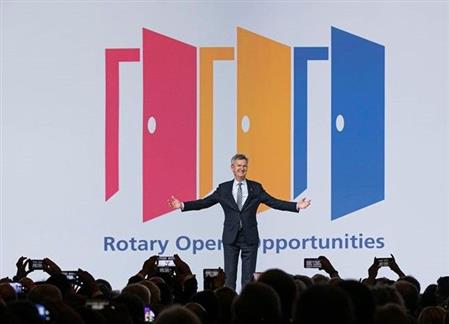
EcoEducation: Environmental Sustainability as a Potential Rotary International Area of Focus
One of the exciting things about being a part of Rotary is that when this organization puts a problem in its cross hairs, there are significant, world-changing, measurable outcomes. The journey to eradicate Polio is a marquee example of what Rotary can accomplish. The Areas of Focus as agreed upon by the Rotary International Board of Trustees is a way to concentrate the resources and passion of Rotarians so collective small actions create disproportionate positive change. As of now, the Environment is not a Rotary Area of Focus.
The absence of the Environment as an explicit Area of Focus may change. There is substantial history of Rotarian action to help sustain the environment, and ESRAG (Environmental Sustainability Rotarian Action Group) has sought from its inception in 2015 to communicate how integral environmental sustainability is to the current Areas of Focus. In the last weeks of January 2020, the Rotary International Board of Trustees announced a review of adding Environmental Sustainability as an independent seventh Area of Focus. Twin Cities Rotary EcoClub's own Steve Solbrack co-drafted the ESRAG position paper in support.
Rotary International has never suggested that environmental sustainability is not important. In fact, Rotary International President Elect Holger Knaack recently addressed the assembly of all District Governors Elect with encouragement to include greater focus on the environment:
"Recent disasters — such as the bush fires in Australia — underscore the importance of taking strong action. Our last three RI presidents made a strong case for Rotary doing more to preserve the environment. There is much we can do ourselves — cutting down on our use of plastic, not overly cooling or heating our homes and offices, not driving too fast on the German autobahn. We are already building environmental protection and sustainability into our service projects, but we have to make these issues more of a priority."
President Elect Knaack also used his address to advance the notion that Rotary must be open to change and new approaches. He specifically talked about creation of new club models - like Twin Cities Rotary EcoClub!
"One way that we will do this is by creating new club models and rethinking what it means to be in Rotary. Young people should be the architects of these new clubs. We have to be open to new approaches — and creating unique new clubs for younger people is just part of the solution. You have the power to implement them. It will be up to you to make it work."
It is pretty neat to see some of the principles that Twin Cities Rotary EcoClub represents being reflected back at the highest levels of Rotary International. Now is a great time to consider joining Rotary and seeing how your passions can be combined with others and work to make remarkable change.
